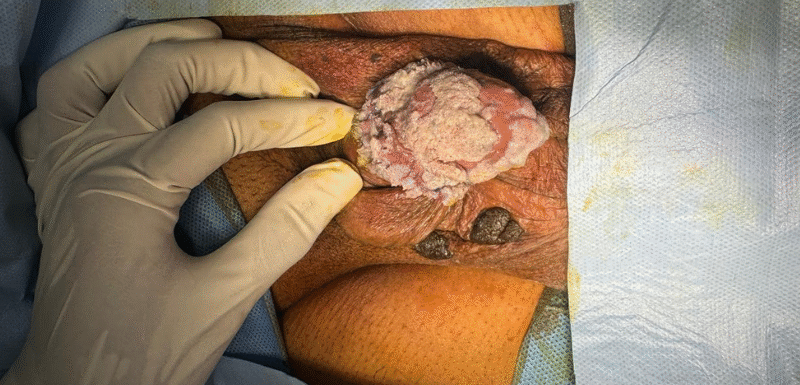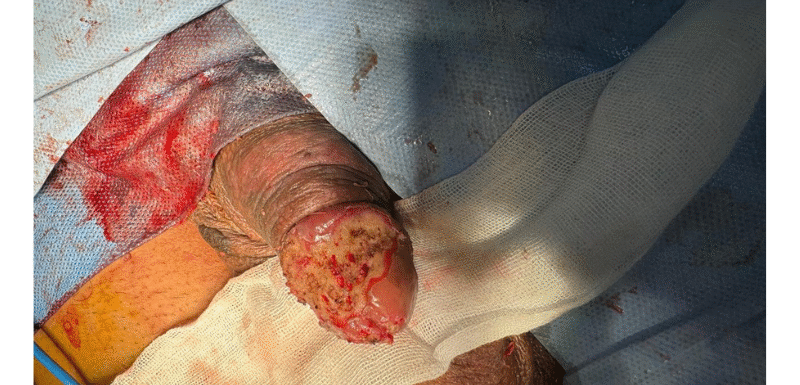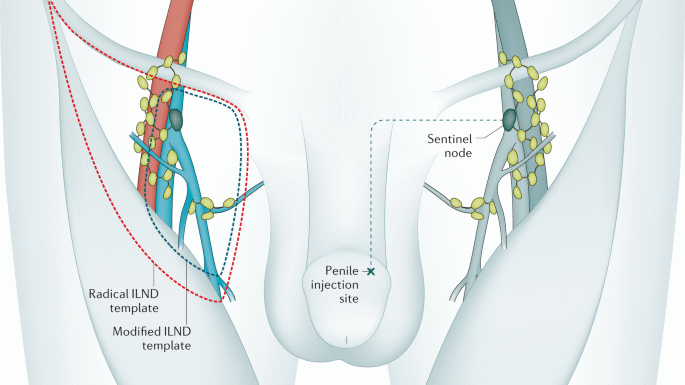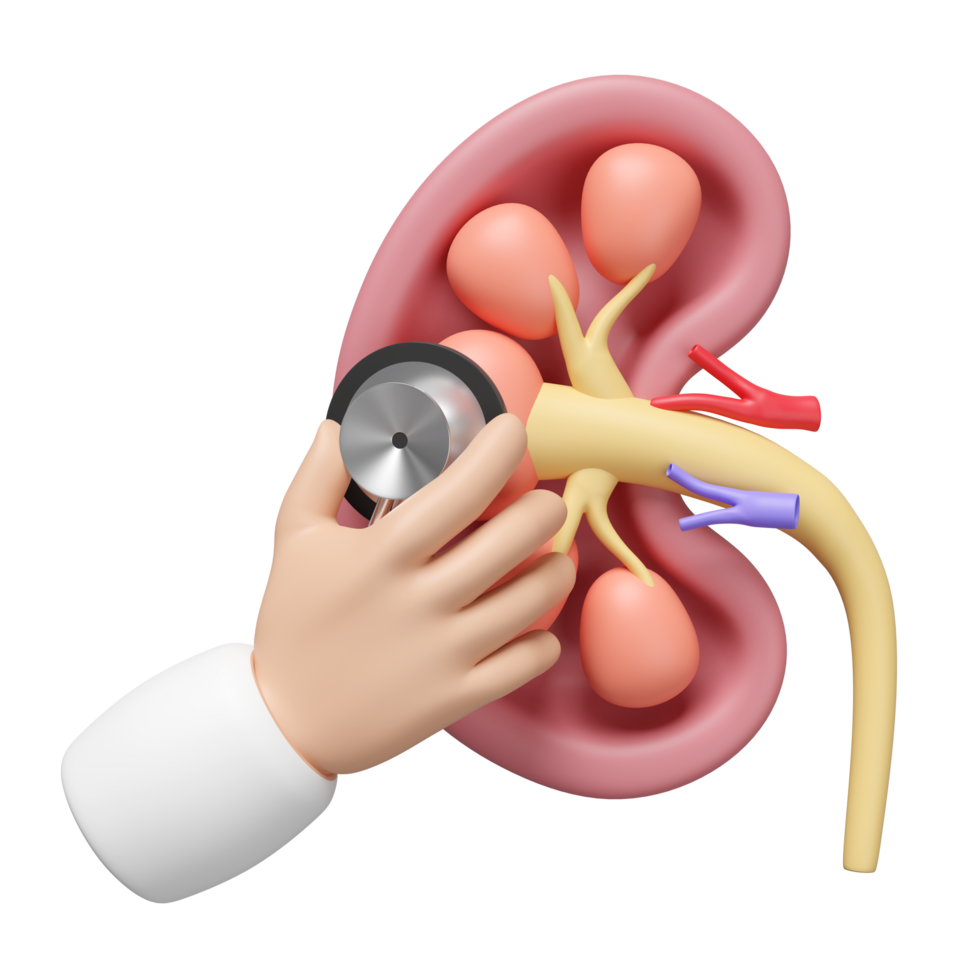WHAT IS PENILE CANCER ?
Cancer of the penis is a rare but serious cancer in the United States. If you are at risk, finding it early is vital. The information here may help you recognize this tumor potentially before it becomes life-threatening.
SYMPTOMS ?
The earlier penile cancer is found, the better. If it’s found early, there is an increased chance for successful treatment and cure. If diagnosis is delayed, the disease can get worse. Treatment for more advanced cancer may be less successful and more disfiguring.
Since you see and touch your penis when you pass urine, you can help spot the disease early. Men who aren’t circumcised are at greater risk for penile cancer. But every man should be on the lookout for penile lesions.
You should see your health care provider if you notice any of these on the foreskin, the shaft or head of your penis:
■ An area of skin becoming thicker and/or changing color
■ A lump on the penis
An ulcer (sore) that might bleed
■ A reddish, velvety rash
■ Small, crusty bumps
■Flat, bluish-brown growths
■ Smelly discharge (fluid) under the foreskin
Most of these signs may be due to bacterial or fungal infection, sexually transmitted infection or even an allergic reaction. All of these will respond to antibacterial or antifungal ointments and creams, or antibiotics. But growths that return or sores that don’t heal must be thought of as cancer until it’s proven they’re not.
Penile cancer is often, unfortunately, ignored until it is advanced. Patients are reluctant or embarrassed to talk about their genitals. Or, they may be afraid of treatment or surgery on the penis. If you notice any of these signs, it is of great value to have them checked by a health care provider as soon as you can.
Causes
The exact cause of penile cancer semains unknown. The most common type is squamous cell carcinoma. Poor genital hygiene, being uncircumcised, older age and smoking are potential risk factors for this type of pende cancer
Another possible cause maybe the human papillomavirus (HPV) HPV is a virus passed through sex Antibodies to HPV 16 have been found in many patients with penile cancer HPV is known to play a role in cervical cancer as well. For more information please review our Sexually Transmitted Disease article. Conditions such as HIV and AIDS can also be a risk factor for Penile cancer.
Men with good genital hygiene, who practice sale sex and who are circumcised are less likely to get penile cancer.
Diagnosis
Penile cancer is diagnosed with a biopsy. This is when a small sample of tissue is removed from the penis and looked at under a microscope. If the call look like cancer cells, they will be “staged” The TNM staging system is the system most often used stands for the main (primary) amor (how far it has grown within the penis or nearby organs). M stands for spread to nearby lymph nodes bean-sized groups of immune system cells Mis for spread to other organs
The call are ahoge a “grade”. This is sure of how abnormal the cells look The grade is often a number, from 1 to 4. The higher the number, the more abnormal the cells look. Higher-grade cancers tend to grow and spread more quickly than lower grade cancer
Hyour doctor believes that cancer has spread to nearby lymph nodes, other tent will be done. A lymph node biopsy may be used to help determine the cancer’s stage and grade. If cancer is thought to spread to other parts of the body. imaging tests such as a CT scan, or MRI will be done

Warty lesion over glans
Treatment
If penile cancer is found early and is low grade and/or stage, it can be treated with success and low risk if the tumor is on top of the skin, it may be treated with a skin cream. This car has few side effects. Extemal beam radiation is abo therapy for small lesions. Other options can include thing such as lasers
If the lesion is larger, but still about the size of apes, a small local excision or “Moh’s surgery may be done depending on the where the lesion is found. This is a type of surgery where layers of abnormale are shaved off until normal tissue is reached. With both of these methods, the penis should still look normal and work as usual. But careful follow-up is vital to check for early recurence. With small lesions, it’s not likely that cancer has spread to the lymph nodes. For this reason, It’s often not necessary to remove the lymph nodes
With larger lesions, more tissue needs to be removed. Your surgeon will also consider taking out or draining lymph nodes in the grain A mix of surgery, relation, and chemotherapy may be needed in cases where the cancer is more advanced, part or even the whole penis may need to be removed
Early detection is very important. It not only ensures better results, but there are more treatment options

Wide local excision over glans


